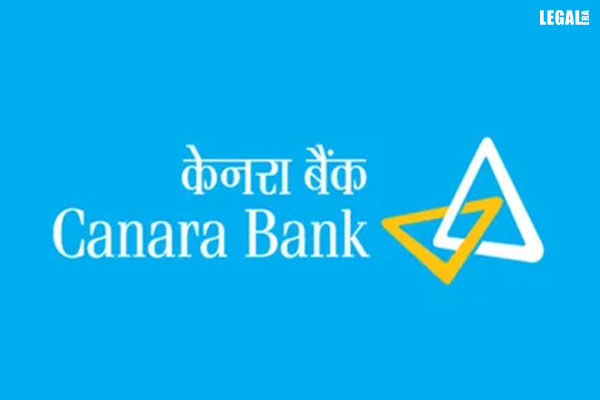
NCLT Cuttack Admits Canara Bank’s Section 7 IBC Plea Against SS Aluminium for ₹15.88 Cr default
SARFAESI and IBC interplay examined in Canara Bank vs SS Aluminium insolvency case
In a significant ruling, the Cuttack Bench of the National Company Law Tribunal has clarified that the mere institution of criminal proceedings against an official of a financial creditor does not constitute a valid ground for rejecting an application filed under Section 7 of the Insolvency and Bankruptcy Code, 2016. This decision reinforces the principle that pre-existing disputes, which may be relevant in cases under Section 9 of the Code, are not applicable for rejecting financial creditor applications under Section 7.
Background of the Case
The application in question was filed by Canara Bank, “Financial Creditor” under Section 7 of the IBC, 2016, read with Rule 4 of the Insolvency and Bankruptcy, Application to Adjudicating Authority Rules, 2016, seeking initiation of the Corporate Insolvency Resolution Process against S.S. Aluminium Private Limited, “Corporate Debtor”. The Financial Creditor sought action for a default amount of ₹15.88 crore.
Credit Facilities and Default
Canara Bank had extended various credit facilities, including cash credit and term loans, to the Corporate Debtor to support the modernisation and expansion of its aluminium plant located in Haldiapada. The loans were aimed at facilitating the company’s aluminium extrusion manufacturing operations, particularly for industrial, automotive, and commercial applications.
Subsequently, an additional term loan of ₹88.64 lakh was sanctioned on 11 July 2025, to further support the capital expenditure requirements of the expansion. However, the Corporate Debtor failed to adhere to the repayment obligations, leading to default on both principal and interest payments.
Classification as NPA and SARFAESI Proceedings
Due to continued non-payment, Canara Bank classified the loan accounts as Non-Performing Assets on 11 May 2021, in line with Reserve Bank of India’s Prudential Norms. Following this, proceedings under Section 13(2) of the SARFAESI Act, 2002 were initiated. A subsequent notice under Section 13(4) was issued, and attempts were made to auction the mortgaged properties. However, the auction failed due to the absence of bidders.
A second set of notices under Sections 13(2) and 13(4) was issued in April and July 2022, respectively. A public notice for sale of secured assets was published in Business Standard on 20 July 2022. Canara Bank also approached the High Court of Orissa, seeking directions for the registration of the Sale Certificate, which was eventually granted on 23 February 2024.
Disputed MSME Status of Corporate Debtor
In an attempt to oppose the insolvency proceedings, the Corporate Debtor claimed status as a Micro, Small and Medium Enterprise under the MSMED Act, 2006. However, the Financial Creditor contested this claim, highlighting that the respondent had failed to provide authenticated documentation of its MSME status at the time the account was declared NPA. The tribunal agreed with the Financial Creditor’s position, stating that the belated claim of MSME status appeared to be an attempt to obstruct insolvency proceedings.
Legal Analysis and Findings of the Tribunal
The Corporate Debtor attempted to rely on a First Information Report filed against an official of Canara Bank to challenge the maintainability of the insolvency application. However, the Bench, comprising Judicial Member Mr. Deep Chourasia and Technical Member Mr. Babulal Meena, ruled that such criminal proceedings against bank officials do not affect the legal validity of applications under Section 7 of the IBC. The tribunal reiterated that, unlike in Section 9 proceedings, pre-existing disputes are not grounds for rejection in matters filed by financial creditors.
Furthermore, the bench held that:
The Corporate Debtor had unambiguously defaulted in repaying a debt exceeding ₹1 crore, supported by the NeSL Form-C and Form-D certificates, bank account statements, and a debt acknowledgment dated 13 July 2021.
The application was filed within the prescribed limitation period, taking into account Section 18 of the Limitation Act, 1963.
The defaults continued beyond the suspension period under Section 10A of the IBC, thus meeting the legal threshold for initiating CIRP.
Final Order
Upon satisfying all statutory requirements under the Code, the NCLT admitted the application and ordered the initiation of the Corporate Insolvency Resolution Process against S.S. Aluminium Pvt. Ltd. The tribunal held that the debt was clearly established, remained unpaid, and that the application was neither barred by limitation nor affected by the alleged criminal proceedings against the bank’s official.
This decision further cements the position that Section 7 of the IBC remains a robust tool for financial creditors to recover dues and initiate insolvency resolution processes, irrespective of unrelated disputes or litigation.